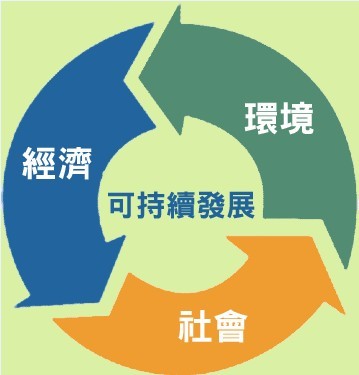SUN RU: Sustainable agenda: Channeling further development

The sustainable agenda highlights the idea of sustainable development that emphasizes integrated development in economy, society and environment.
On Sept. 25, the UN Sustainable Development Summit adopted a post-2015 development agenda. “Transforming Our World: The 2030 Agenda for Sustainable Development” charts a roadmap for global development over the next 15 years. UN Secretary-General Ban Ki-moon called the new agenda “a promise by leaders to all people everywhere” at the opening of the summit.
A follow-up to the outcome of the UN Millennium Summit—the Millennium Development Goals (MDGs), the agenda has higher standards and a broader scope.
It has reestablished the idea of development. Sustainable development emphasizes integrated development in economy, society and the environment. But the idea has yet to truly be put into practice.
The MDGs focused on poverty eradication. However, the traditional mode of economic growth has caused environmental degradation and is unsustainable.
After 15 years of practice, developed and developing nations have become aware of the inseparable relationships among economy, society and the environment and embraced the idea of integrated development. The post-2015 agenda shows the international community has abandoned the singular pursuit of economic growth and turned toward an inclusive, green development pattern.
Furthermore, the agenda has broadened the scope of development. The MDGs included eight goals with 21 targets, while the sustainable agenda establishes 17 goals with 169 targets. The new agenda continues to make poverty eradication a top priority and retains topics like education, health, gender equality and climate change while adding other topics, such as water and marine resource conservation, energy security, and inequality.
Moreover, the new agenda pays more attention to balanced development. It encompasses social issues, like protecting the rights of vulnerable groups, as well as economic issues, such as resource and energy security. It also includes sustainable models of consumption and production in addition to environmental issues, such as marine and biodiversity conservation.
A wider range of participants was involved in formulating the agenda. Adopting the MDGs was a top-down decision made by a private session of employed experts. By contrast, the post-2015 agenda was adopted through open negotiations led by the UN, during which international organizations, governments, non-governmental organizations and academic communities held discussions and contributed feedback. The MDGs only applied to developing nations, while the sustainable agenda applies to all nations of the world.
It is an arduous task for the sustainable agenda to complete what was not achieved by or not included among the MDGs. The process will require cooperation between developed and developing nations.
At present, there are new opportunities for international development cooperation. There is growing consensus between developed and developing nations, which is driving North-South cooperation.
Development cooperation continues to grow stronger. Developed nations cooperate through platforms like the G7 and the OECD, while developing nations and emerging economies cooperate through the G77 and BRICS.
Recently, Northern and Southern countries have strengthened the coordination of macro policy and the communication of the idea and experience of development. In addition, the use of leverage, such as financing, trade and investment, also helps promote international development cooperation.
Nevertheless, development problems still remain. The version of the sustainable agenda released in 2013 set overly ambitious goals that necessitated a large quantity of capital. And it required developed nations to increase assistance to developing nations in such areas as financing, technology and capacity building. However, records show that developed nations have not completely fulfilled their promises.
Furthermore, developing nations, though conforming to their “common but differentiated responsibilities,” have failed to benefit from such a principle. The new agenda laid down measures in areas such as fundraising, technology, capacity building and trade, but lessons of the MDGs show that it is still difficult to solve problems of supervision and accountability.
Sun Ru is a research fellow from the China Institutes of Contemporary International Relations.

 PRINT
PRINT CLOSE
CLOSE